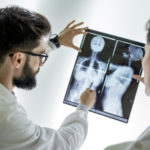Can Night Shift Work Lead To Breast Cancer?
First I heard that working the night shift raises the risk of breast cancer. Then I read it doesn’t. Now I hear it can cause several kinds of cancer. What’s right?
Andrew Weil, M.D. | February 28, 2018

I don’t blame you for being confused. Here’s an update on what we know: In 2001 a study from the Fred Hutchinson Cancer Research Center found that women in Seattle who worked the graveyard shift faced up to a 60 percent increased risk of breast cancer, and subsequent research revealed similar patterns. Then, in 2016 a team of British researchers looked at data on 800,000 women in the UK as well as studies performed elsewhere. All told, this research, including data on 1.4 million women, concluded that working the night shift even for as long as 20 or 30 years did not increase breast cancer risk.
The latest word on the connection between cancer risk and night shift work comes from China. Researchers there decided to investigate the issue because the conclusions from previous research have been inconsistent. The Chinese team analyzed data from 61 studies including 114,628 cancer cases and 3,909,152 individuals from North America, Europe, Australia, and Asia. They focused on determining whether long-term night shift work was associated with an increased risk for nearly a dozen types of cancer in women in general and six types of cancer in female nurses.
They found that, overall, long-term night shift work increased the risk of cancer by 19 percent, including a 41 percent increased risk of skin cancer, a 32 percent increased risk of breast cancer and an 18 percent increased risk of gastrointestinal cancer (compared with women who didn’t work the night shift long-term).
When they looked only at female nurses, the researchers saw a 58 percent increased risk of breast cancer among those who worked the night shift. Furthermore, the risk of breast cancer increased by 3.3 percent for every five years of night shift work. GI cancer was 35 percent higher and lung cancer 28 percent higher among nurses who worked at night.
Surprisingly, the team found an increased risk of breast cancer only among women who worked the night shift in North America and Europe. Lead researcher, Xuelei Ma, an oncologist at Sichuan University, suggested the that women in those locations may have higher sex hormone levels, a known risk factor for breast cancer. He also raised the possibility that because of their medical background nurses may be more likely than other women to undergo breast cancer screening exams.
Dr. Ma noted that the new research was limited by a lack of consistency between earlier studies on the definition of “long-term” night shift work. Some focused only on “working during the night” or “working at least three nights per month.”
Although the study found an association between night shift work and an increased risk of cancer, it doesn’t prove cause and effect. A possible mechanism by which shift work might cause breast cancer is that even brief exposure to artificial light at night suppresses the pineal gland’s production of melatonin, a neurotransmitter with strong anti-cancer properties. Animal studies show that human breast cancer tumors transplanted into rats grow more quickly in the presence of melatonin-depleted blood. In addition, other studies have suggested that women who sleep with light in the bedroom (even from a television left on) are at increased risk of breast cancer compared to women who sleep in complete darkness.
Andrew Weil, M.D.
Source:
Xuelei Ma et al, “Night Shift Work Increases the Risks of Multiple Primary Cancers in Women: A Systematic Review and Meta-analysis of 61 Articles.” Cancer Epidemiology Biomarkers & Prevention, January 2018, DOI: 10.1158/1055-9965.EPI-17-0221












